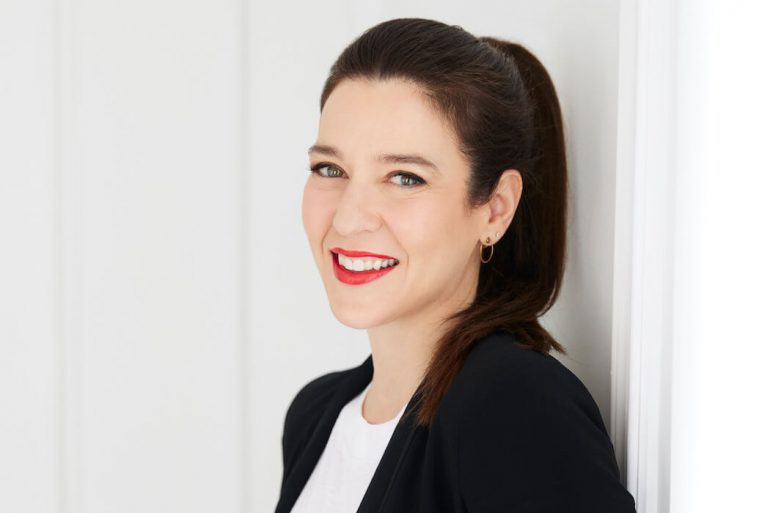Growing up in a family of entrepreneurs, starting a business seemed like the default path for Stephany Lapierre.
She eventually built a successful consultancy helping healthcare companies with supplier management. However, she kept running into the pesky problem of data messiness. After spending nine years trying to “kill” the problem with consulting, she realized artificial intelligence (AI) could do it better.
If multiple people repeat a similar piece of feedback, she knows it’s likely to be valuable.
On the #CIBCInnovationEconomy podcast, Lapierre explained how feedback became critical to her success with TealBook and her response to critics who say she listens to too much feedback.
After starting a small business in high school, going to college, and working in business development for healthcare companies, Lapierre was ready to start another company. She chose a consulting business based on her healthcare experience and built Matchbook, a procurement services consultancy for biotech companies.
Lapierre ran Matchbook for nine years and began to notice many of her clients had the same challenge: even with top-notch supplier management software, her clients had low-quality data because vendors didn’t want to spend hours inputting all their information. Confronted with this problem, she started envisioning a platform that would leverage technology to automatically bring high-quality data into existing software to help companies make better supply chain decisions.
“The problem was always so real and in front of me,” said Lapierre. “And I thought, if this vision I have existed, it would solve problems for every single customer that I worked with.”
Eventually, the nagging feeling got to her. She started TealBook to build an AI solution to aggregate data on suppliers globally.
Coming into the tech world with no team and no tech background, Lapierre tried to fundraise but was met with decline after decline. Unwilling to settle for a simple no, Lapierre asked every investor who declined her why they weren’t moving forward. A few offered niceties, but Lapierre said “the ones that were real and told me the truth are the ones that helped.”
For example, one investor told her that he wasn’t investing because she didn’t have a team behind her. Another investor said that since Lapierre initially outsourced TealBook’s technology development (owing to Lapierre not having a tech background), the company had no valuable IP to invest in.
These two pieces of information proved critical for TealBook’s early success, helping Lapierre make the strategic decision to bring all development in-house and build a team with technical know-how. Buoyed by the impact of that early feedback, Lapierre continued to listen to anyone who provided feedback, though some people tell her that she listens to it too much.
The key for Lapierre, though, is listening for trends rather than implementing every suggestion.
“It doesn’t mean that I take all the feedback,” said Lapierre. “I internalize it and then make my own decisions, but it allows me to get perspective.”
Lapierre also added that when listening to feedback, she listens for trends. If multiple people repeat a similar piece of feedback, she knows it’s likely to be valuable.
TealBook is now a venture capital darling, having recently raised over $50 million in Series B funding. Talking about this success, Lapierre shared a key lesson she learned from the feedback she got—she needed to build the company in a way that didn’t solely rely on her. In her consultancy, she was a key employee and hired others with the same kind of specialized knowledge. As a startup founder, she learned she needed to change her leadership style to match the type of hyper-growth company TealBook was becoming.
“I looked at it from [an investor’s] lens and saw, OK, I need to de-risk myself,” said Lapierre. “And that was building the team. Bringing the technology in-house. Bringing advisors in. All of that network that I’ve surrounded myself with was to de-risk the fact that the company did not just rely on me, and I had complimented my skill set so that we could actually execute.”
Image courtesy TealBook.

